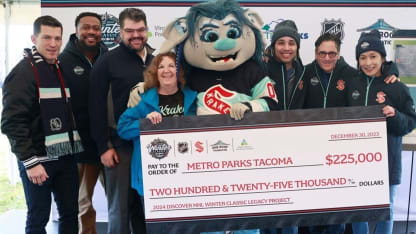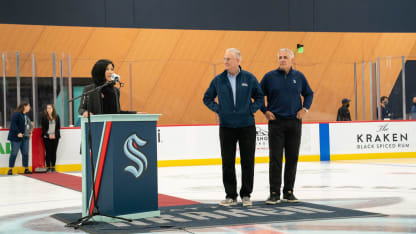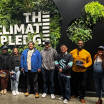William Douglas has been writing The Color of Hockey blog since 2012. Douglas joined NHL.com in 2019 and writes about people of color in the sport. Today, as part of NHL.com's celebration of Asian & Pacific Islander Heritage Month, he profiles Mari Horita, Seattle Kraken senior vice president, social impact & government relations, and executive director of One Roof Foundation, the philanthropic arm of the team and Climate Pledge Arena.
Mari Horita met with Tod Leiweke in the summer of 2018 looking to make a corporate connection and perhaps enlist support from the CEO of the then-unnamed Seattle NHL franchise for the local nonprofit arts organization she headed.
“They were in a makeshift office, maybe seven people there, no name, no arena, no nothing," Horita said. "Just Tod, a few people and a pooled idea. I obviously didn’t ask them for money because they didn’t exist yet. So we talked for about an hour … It was a great conversation, and I figured I’d never hear from them again.”
But Leiweke and Seattle Kraken officials called back a week later for further discussions that led to Horita being hired in 2018 and becoming the team’s senior vice president of social impact and government relations and executive director of the One Roof Foundation, the philanthropic arm of the team and Climate Pledge Arena.






















